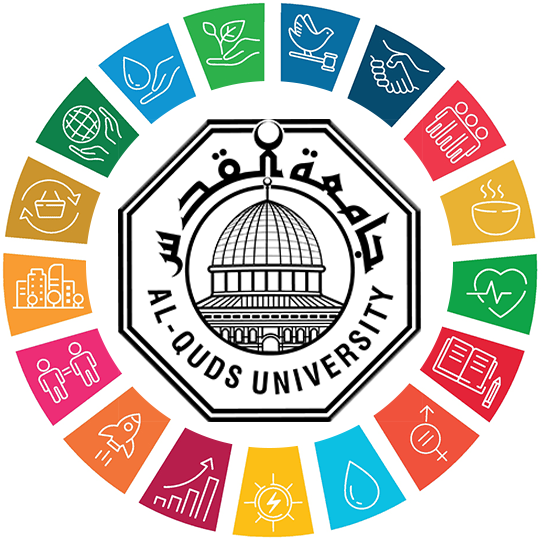The purpose of this Water Conservation Policy is to promote responsible water usage and management at Al-Quds University, with the goals of reducing water consumption, minimizing waste, and protecting the local environment. The policy aims to engage all members of the university community, including students, faculty, staff, and administration, in adopting sustainable practices that contribute to a more water-efficient campus.
Scope
This policy applies to all buildings, facilities, and outdoor spaces owned, leased, or operated by Al-Quds University, as well as all university-sponsored events and activities, both on and off-campus.
Water Conservation Measures
A. Water Efficiency and Reduction
- We have installed water-saving fixtures and appliances throughout our facilities, including low-flow faucets, showerheads, and toilets, to conserve water effectively.
- A regular maintenance program has been put into effect to swiftly identify and repair any leaks, ensuring optimal water usage.
- We actively promote and instill responsible water use within our university community to foster an environment of sustainability.
- Through the use of water metering and monitoring systems, we track our water usage and continually identify areas where we can further improve our water efficiency.
B. Landscaping and Irrigation
- Design and maintain water-efficient landscapes that utilize native and drought-tolerant plant species.
- Implement smart irrigation systems that use weather-based controllers and soil moisture sensors.
- Limit the use of potable water for landscaping purposes by capturing and reusing rainwater or using reclaimed water.
- Schedule irrigation during early morning or late evening hours to minimize evaporation.
C. Greywater and Rainwater Harvesting
- We have designed and maintained landscapes that are water-efficient, making use of native and drought-tolerant plant species to conserve water resources.
- We have installed intelligent irrigation systems equipped with weather-based controllers and soil moisture sensors for optimal water usage.
- We have minimized the use of potable water for landscaping by adopting innovative measures like rainwater harvesting and the use of reclaimed water.
- To reduce water wastage due to evaporation, we have scheduled our irrigation practices during the early morning or late evening hours.
D. Education and Awareness
- We have developed and rolled out educational programs and campaigns to foster water conservation and sustainable water management practices among our students, faculty, and staff.
- We regularly organize workshops, seminars, and training sessions to enlighten our community about water conservation techniques and technologies.
- We have established a dedicated Water Conservation Committee to supervise the implementation of water-saving policies and track progress.
- We consistently encourage active participation in university-wide sustainability initiatives and events with a particular focus on water conservation.
Monitoring and Reporting
- We diligently monitor water consumption data and consistently generate reports about our water conservation endeavors.
- We have established campus-wide water reduction targets and regularly assess progress towards achieving these objectives.
- We take pride in sharing our water conservation success stories and best practices with the entire university community.
- We continuously reassess and update our water conservation policy to guarantee its effectiveness and alignment with our evolving sustainability objectives.
By implementing this Water Conservation Policy, Al-Quds University demonstrates its commitment to responsible water management and aims to foster a culture of sustainability within its community.
